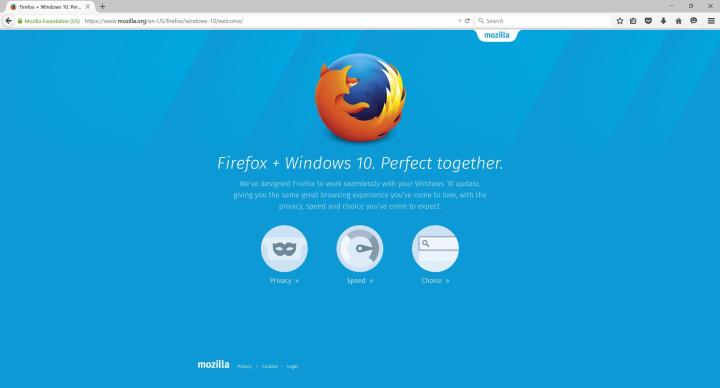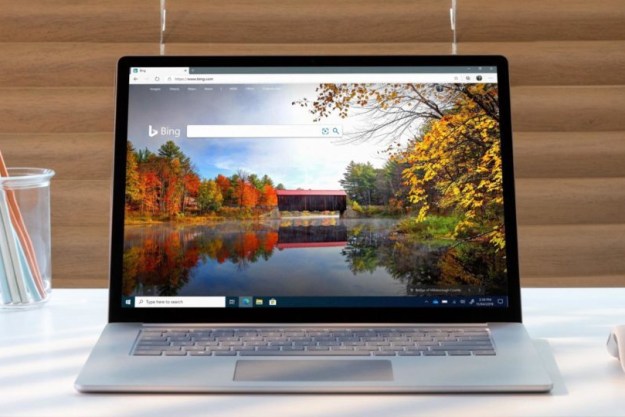
Besides slight design changes to the Windows 10 version of the browser, Mozilla has also automatically tweaked the search engine in the Windows 10 taskbar. By default, the taskbar uses Microsoft’s Bing to search the Web. When a user chooses to make Firefox their default browser, the Windows 10 taskbar uses the same search engine as Firefox. For instance, if you have Google set as the default in Firefox, the Windows 10 taskbar will change from Bing to Google.
Regarding updates to security settings on third party add-ons, Mozilla has created a certification process with guidelines for third party developers to follow. As of Firefox 40, users will start to see warnings about third party add-ons that haven’t gone through the certification process. In future versions of Firefox, Mozilla will be automatically disabling third party add-ons that haven’t gone through certification.
Anyone that’s interested in installing the Windows, Mac or Linux version of Firefox can find the latest version on Mozilla.org. If you already have Firefox installed and simply want to trigger the update prior to the next scheduled automatic update, click the Open Menu icon in the top right corner of the browser window, then the question mark icon at the bottom of the menu, then “About Firefox” to trigger the update. The Android version will be distributed via Google Play over the next week.
Editors' Recommendations
- Windows 11 vs. Windows 10: finally time to upgrade?
- The best Windows 10 keyboard shortcuts
- Is macOS more secure than Windows? This malware report has the answer
- Top 10 Windows shortcuts everyone should know
- After 10 years of headaches, I’m finally a believer in Windows on ARM


